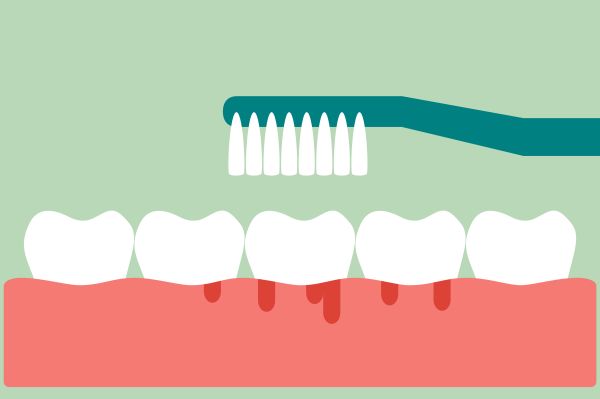Everyday Tips to Prevent Gum Disease

Gingivitis and periodontitis, which are stages of gum disease, are serious conditions that can wreak havoc on a patient's oral health. Left untreated, these issues can lead to gum recession and eventual tooth loss. The good news, though, is that these problems are often preventable, and the steps needed to avoid them are easier than one might think. According to the National Institute of Dental and Craniofacial Health, gingivitis and periodontal disease are largely caused by poor brushing and flossing. People must develop good daily oral hygiene routines to help reduce the chance of developing gum complications.
Daily habits that help prevent gum disease
Developing good oral hygiene practices is vital for persons of any age. Many gum disease prevention methods are common-sense approaches that are easy to implement.
Brushing
Effective tooth-brushing is one of the most reliable ways of preventing gum disease. Most patients should be brushing teeth at least twice daily, but for those with risk factors for periodontitis, more frequent care may be necessary. Brushing should be done for at least two minutes every session.
While most individuals can benefit from an electric toothbrush, these devices are especially helpful for those with limited dexterity. These patients may find that a regular toothbrush is too difficult to maneuver effectively, and a power brush can do the work for them. This can help reduce overall plaque buildup and the resulting gingival inflammation.
Flossing
According to a study released by the American Dental Association, only 16% of adults state that they floss every day. While most people understand that flossing is important, many do not implement this into a daily routine. Plaque biofilm becomes trapped in the spaces between the teeth, and a toothbrush cannot effectively remove it. Without flossing, much of the tooth surface is not cleaned, and the bacteria found in plaque are able to cause destruction of the gums.
Rinsing
Using a mouthwash can be beneficial when used in conjunction with other oral hygiene aids like brushing and flossing. While rinsing alone does not fully cleanse all plaque and bacteria from teeth, it can help wash away biofilm that is loosened by brushing and flossing. Patients often like the fresh feeling that they have after using a mouthwash, so this is usually an easy habit to implement into a daily routine.
Conclusion
The prevention of gum disease does not have to be difficult. It does not need to involve hours of self-care every day. Instead, a few simple approaches to dental hygiene can greatly reduce the effects that plaque and bacteria have on the teeth and gums. The few minutes spent on daily hygiene habits can be highly beneficial long-term, and the prevention of oral disease is much easier than the treatment of it. For patients who have been lax with oral vigilance, now is the time to consult with a dentist. Getting back on track with routine dental care is one of the most important parts of gum disease management.
Request an appointment here: https://www.smilesbyjulia.com or call Smiles By Julia at (954) 493-6556 for an appointment in our Fort Lauderdale office.
Check out what others are saying about our services on Yelp: Read our Yelp reviews.
Related Posts
Dental veneers are thin pieces of porcelain that are designed to mimic the appearance of natural teeth. To maximize their effectiveness, patients should learn how to care for them. These appliances are used to enhance the appearance of the smile by covering flaws, such as broken, discolored, chipped, or gapped teeth. With proper care, such…
Veneers are artificial shells placed on the surface of teeth to cover up a number of cosmetic issues. Patients who have cosmetic problems, whether teeth are chipped, cracked, stained, or too small, frequently hide these imperfections by not smiling. This can impact self-confidence and affect a person’s daily quality of life. A patient with a…
Dental veneers can be used to cover gapped, misaligned, or stained teeth. These permanent tooth coverings are made out of a variety of materials, the most common being porcelain, allowing for a cosmetic solution that does not require special care beyond basic dental hygiene and can last up to 15 years. Find out how this…
Many dental patients turn to veneers to help fix their smiles. This popular treatment option is able to correct many minor issues with the teeth and is an easy procedure that can quickly enhance a smile’s appearance.The following are questions that patients frequently ask about veneers:Veneers are not considered permanent, but are long-lasting. They usually…
